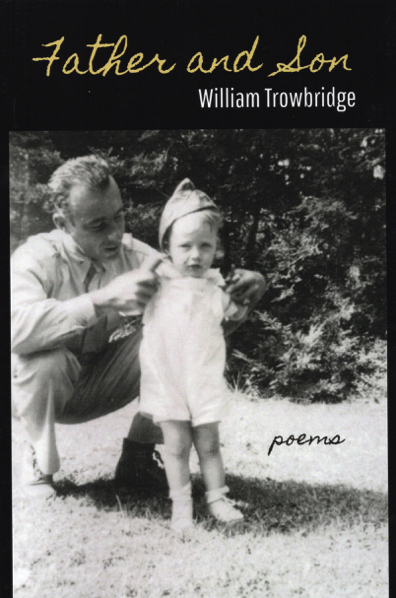
Father and Son

William Trowbridge takes on a mythic task here, that of a son carrying the emotional weight of his father, in memory, of course, but infused with the spirit of Aeneas, carrying his own father, Anchises, out of Troy as it burned. So Trowbridge bears up with a father who is emotionally shaken from the effects of war and life. This poet, as “begotten son” from “Wartime, 1942”—on the father's shoulders, then—brandishes his characteristic haunted humor, helmets on, he says, metaphorically, for his entire family. To read these poems is to understand the ground many families occupy but few address. Let these poems deliver you, through confrontation and compassion, to a bright and lucid present.
—Robert Stewart, author of Working
In Father and Son, William Trowbridge, one of our country's most accomplished and entertaining poets, draws back the curtain on the conflicted father-son relationship he had written about before, but never in such detail. Here he provides all the context: the soldier father returning traumatized from the War, taking out his rage and disappointment on his family, including his infant son who had been prepared to worship him: “When he hugged, / his cheek / scraped like sandpaper, how I thought / a hero's face should feel; his slaps / could blur my eyes.” The elder Trowbridge remains a controlling bully, treating family as if they lived in a barracks, yet the poet's trademark wit and flair leaven the darkness with understanding and humor, as in “Wrestlers” or the hilarious “My Father's Laugh.” Though he and his father never truly reconciled, he writes movingly of the old man's final years of mental and physical deterioration. Readers can be grateful for – indeed relish – the humanity and craft this survivor brought to his brilliant poetic exorcise.
—Bruce Bennett, author of Navigating the Distances: New and Selected Poems